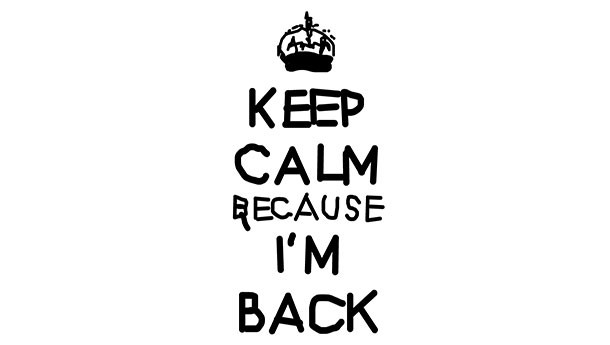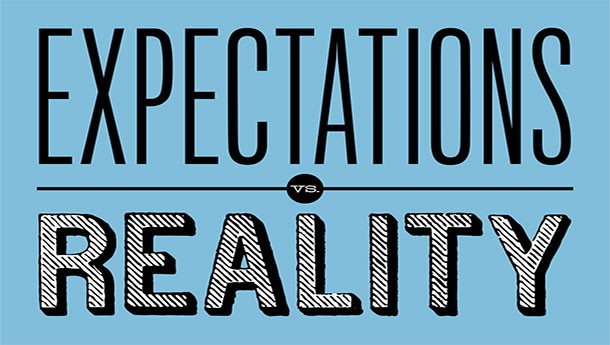Can you picture having psychological tools at your disposal that could give you an advantage in almost every situation? Such tools do exist, and we’ve compiled them for you today! However, we would like to clarify one thing before we start – we, at List25, don’t endorse manipulating people. That is not the purpose of this compilation. Despite this, there are fascinating ways in which we can apply psychological principles to enhance various circumstances. Here are the 25 Psychology Hacks to Control (Almost) Any Situation.

Featured Image: Shutterstock
If you are in customer service, have a mirror somewhere facing the customer. Customers are far less likely to get unreasonably angry when they can see themselves
 Source: quora, Image: Shutterstock
Source: quora, Image: Shutterstock If someone only partially answers your question, don't interrupt...wait. You are far more likely to get a complete answer by saying nothing than saying something.
 Source: lifehacker.com, Image: https://pixabay.com/en/wait-sign-waiting-icon-stop-661072/
Source: lifehacker.com, Image: https://pixabay.com/en/wait-sign-waiting-icon-stop-661072/ After you state your position in a negotiation, if you are still speaking, you are not speaking in your favor.
 Source: quora, Image: Shutterstock
Source: quora, Image: Shutterstock If you want to get something from someone, try framing it as though it were an offer instead of a request.
 Source: mindtools.com, Image: Shutterstock
Source: mindtools.com, Image: Shutterstock When playing any sport and somebody is on fire, just ask them about their technique. This gets them out of their body and back into their head. What does that accomplish you might ask? Well, it makes them over-think what they’re doing...and mess it up.
 Source: quora, Image: Shutterstock
Source: quora, Image: Shutterstock When meeting people, try to notice their eye color while you smile at them. You don’t have to mention anything about it, but it’s a good way to make sure that you really look them in the eyes.
 Source: mindzette.com, Image: https://pixabay.com/en/eye-blue-eye-eyeball-eye-closeup-369557/
Source: mindzette.com, Image: https://pixabay.com/en/eye-blue-eye-eyeball-eye-closeup-369557/ As the conventional wisdom goes, a person’s name is the sweetest sound in the world to that person. If you remember a person’s name, you will make that person feel very special indeed.
 Source: Dale Carnegie via goodreads, Image: https://commons.wikimedia.org/wiki/File:Hello_my_name_is_sticker.svg
Source: Dale Carnegie via goodreads, Image: https://commons.wikimedia.org/wiki/File:Hello_my_name_is_sticker.svg Chew gum if possible when doing nerve-racking things. It somehow gets your brain to calm down
 Source: livescience.com, Image: https://en.wikipedia.org/wiki/File:Super_Bubble_Gum.jpg
Source: livescience.com, Image: https://en.wikipedia.org/wiki/File:Super_Bubble_Gum.jpg If you can get someone to do something simple for you, they are more likely to do something bigger. It’s called gradual commitment or “foot in the door”
 Source: wikipedia, Image: https://pixabay.com/en/door-handle-keyhole-wooden-metal-690704/
Source: wikipedia, Image: https://pixabay.com/en/door-handle-keyhole-wooden-metal-690704/ Note: we don’t advocate taking advantage of people
If you work in retail and get angry at customers who are angry at you, you’re just taking the bait. Respond with kindness and the situation will either diffuse, or they’ll go on to act even crazier and make fools out of themselves
 Source: huffingtonpost.com, Image: https://pixabay.com/en/man-angry-irritated-unhappy-mask-390339/
Source: huffingtonpost.com, Image: https://pixabay.com/en/man-angry-irritated-unhappy-mask-390339/ When you are trying to learn something, teach someone about it. It will really cement it into your mind
 Source: wikihow.com, Image: https://www.pexels.com/photo/apple-apples-book-education-50605/
Source: wikihow.com, Image: https://www.pexels.com/photo/apple-apples-book-education-50605/ If you try to act excited to see people, they will generally respond in kind. Maybe not every time, but as a general rule it holds up pretty well.
 Source: lifehack.org, Image: https://www.flickr.com/photos/edanley/3246241416
Source: lifehack.org, Image: https://www.flickr.com/photos/edanley/3246241416 Don’t talk about other people behind their backs. In the short run this may be hard when all of your friends are gossiping, but in the long run people will realize that you don’t partake in the gossip and your trust points increase!
 Source: becomingminimalist.com, Image: https://pixabay.com/en/speech-bubbles-comments-orange-303206/
Source: becomingminimalist.com, Image: https://pixabay.com/en/speech-bubbles-comments-orange-303206/ People won’t remember what you said. They’ll remember how you made them feel. So don’t worry if you feel like you said something silly, if the overall gist of the conversation was positive, then that is typically how it will be remembered
 Source: Maya Angelou via wikiquote, Image: https://pixabay.com/en/emotions-smileys-feelings-faces-36365/
Source: Maya Angelou via wikiquote, Image: https://pixabay.com/en/emotions-smileys-feelings-faces-36365/ Most people’s favorite subject to talk about is themselves. If you don’t know what to talk about, or have awkward silence, just ask them questions.
 Source: socialpronow.com, Image: https://pixabay.com/en/me-human-man-i-self-egoist-150143/
Source: socialpronow.com, Image: https://pixabay.com/en/me-human-man-i-self-egoist-150143/ It’s easy to judge a person’s character by noticing the way they treat people who can’t do anything for them
 Source: philosiblog.com, Image: https://commons.wikimedia.org/wiki/File:Homeless_Man.jpg
Source: philosiblog.com, Image: https://commons.wikimedia.org/wiki/File:Homeless_Man.jpg When you go on first dates, make them exciting (roller coasters, sky-diving, etc). Your date’s heart will race, adrenaline will flow, and they will indirectly associate the endorphin flood with you. In psychology it’s called the misattribution of arousal
 Source: wikipedia, Image: https://commons.wikimedia.org/wiki/File:Skydiving_over_Cushing.jpg
Source: wikipedia, Image: https://commons.wikimedia.org/wiki/File:Skydiving_over_Cushing.jpg Emotional expression causes emotion. This means that if you force yourself to smile, your mood will actually improve. Psychologists have even found that people are happier when they are asked to hold chopsticks between their teeth
 Source: psychologytoday, Image: https://pixabay.com/en/smile-ball-yellow-837661/
Source: psychologytoday, Image: https://pixabay.com/en/smile-ball-yellow-837661/ If someone is making jokes to the group at your expense, ask them to repeat the joke several times. It seems counter-intuitive, but it will become progressively less funny and nobody will remember it.
 Source: quora, Image: https://www.flickr.com/photos/93963757@N05/8551937456
Source: quora, Image: https://www.flickr.com/photos/93963757@N05/8551937456 When debating, don’t give away your stance first but rather your argument. If you tell people where you stand they will more than likely discard anything you say about the subject because they will already have “understood” your bias (oh, he’s a Republican). If you don’t tell them where you stand, and let it remain a mystery, they will have to piece things together for themselves and really try to understand your argument.
 Source: quora, Image: https://pixabay.com/en/conversation-talk-talking-people-799448/
Source: quora, Image: https://pixabay.com/en/conversation-talk-talking-people-799448/ Especially with kids, frame things in a way that always gives them a choice and makes them feel like they are in control. For example, “Do you want to wear your red shirt or your blue shirt?” Either way, they know it’s time to put on a shirt.
 Source: empoweringparents.com, Image: https://commons.wikimedia.org/wiki/File:Choose_(15853086440).jpg
Source: empoweringparents.com, Image: https://commons.wikimedia.org/wiki/File:Choose_(15853086440).jpg Try to replace filler words like “um” with short pauses (to gather your thoughts)
 Source: scottyoung.com, Image: https://pixabay.com/en/speech-stage-lecture-microphone-1015285/
Source: scottyoung.com, Image: https://pixabay.com/en/speech-stage-lecture-microphone-1015285/ When asking for favors (like cutting in line) try to use the word “because”. Researchers have found that no matter how dumb the reason, the word “because” has the potential to short-circuit people’s brains and make them think it must be okay because there is a reason.
 Source: jamesclear.com, Image: https://www.sketchport.com/drawing/5018032057352192/keep-calm-because-i-m-back
Source: jamesclear.com, Image: https://www.sketchport.com/drawing/5018032057352192/keep-calm-because-i-m-back Note: this is actually based on a famous study in 1977 called the Copy Machine Study done at Harvard University. To summarize, a researcher would walk over to somebody waiting in line to use the copy machine. They would then ask one of 3 questions:
Version 1 (request only): “Excuse me, I have 5 pages. May I use the Xerox machine?”
Version 2 (request with a real reason): “Excuse me, I have 5 pages. May I use the xerox machine, because I’m in a rush?”
Version 3 (request with a fake reason): “Excuse me, I have 5 pages. May I use the xerox machine, because I have to make copies?”
Although version 3 seems a bit senseless, the results were as follows:
Version 1: 60 percent of people let the researcher skip the line.
Version 2: 94 percent of people let the researcher skip ahead in line.
Version 3: 93 percent of people let the researcher skip ahead in line.
It seems that just using the word “because” and giving a nonsensical reason is quite effective.
Try to have zero expectations when you are first going into something, it has the potential to prevent disappointment
 Source: psychologytoday.com, Image: https://www.flickr.com/photos/bjornmeansbear/4305366199
Source: psychologytoday.com, Image: https://www.flickr.com/photos/bjornmeansbear/4305366199 Stand up straight. Not only will people see you as more confident, you will actually feel more confident.
 Source: nerdfitness.com, Image: https://www.flickr.com/photos/59632563@N04/6664212003
Source: nerdfitness.com, Image: https://www.flickr.com/photos/59632563@N04/6664212003 


























